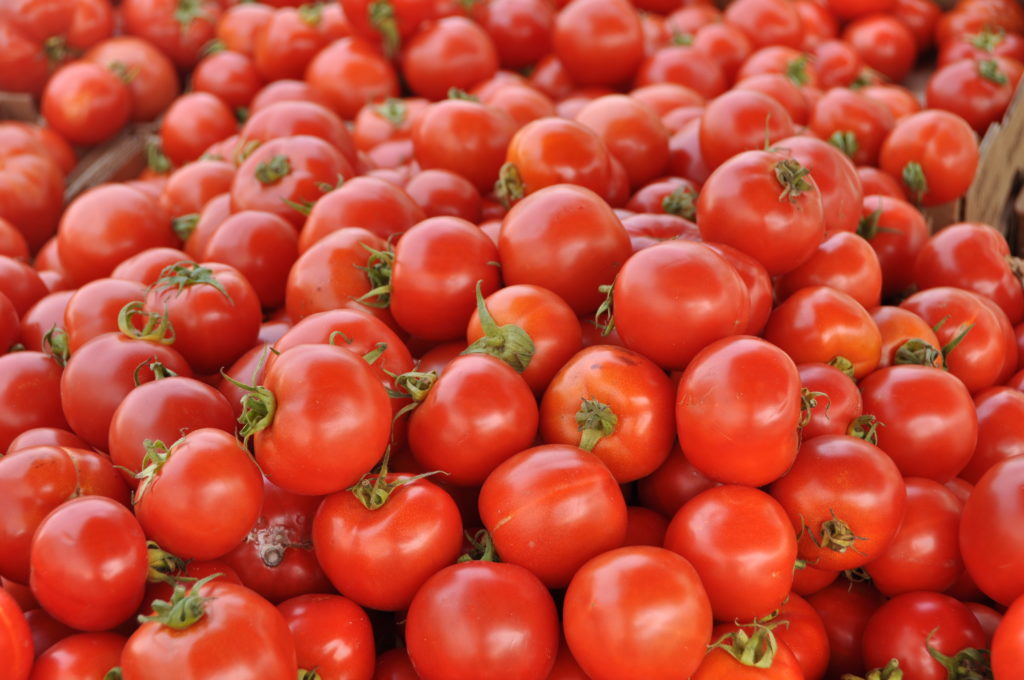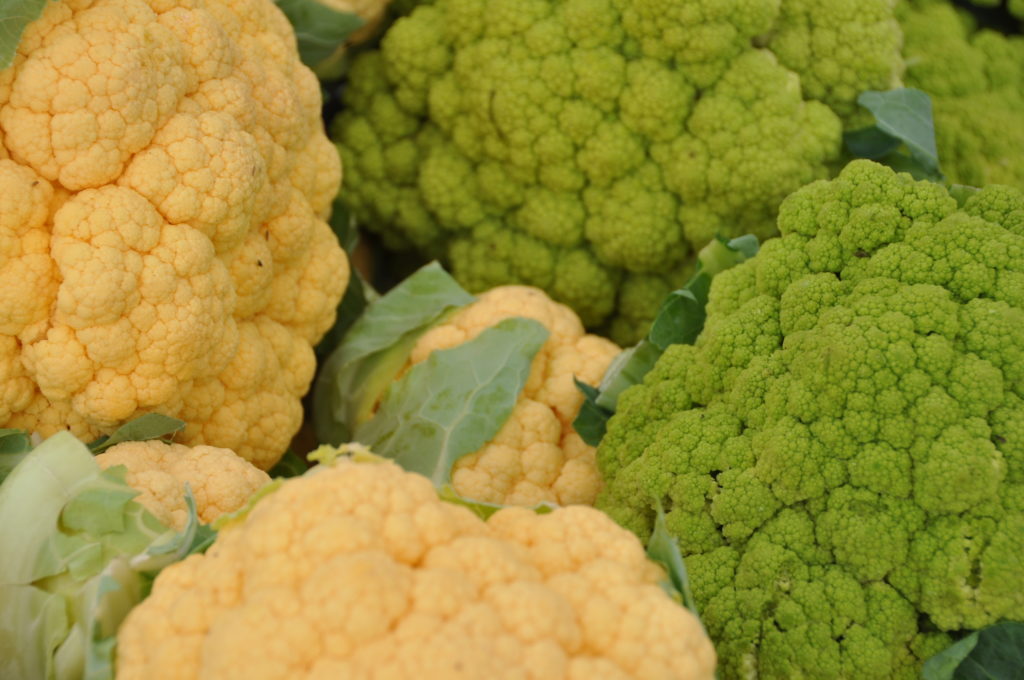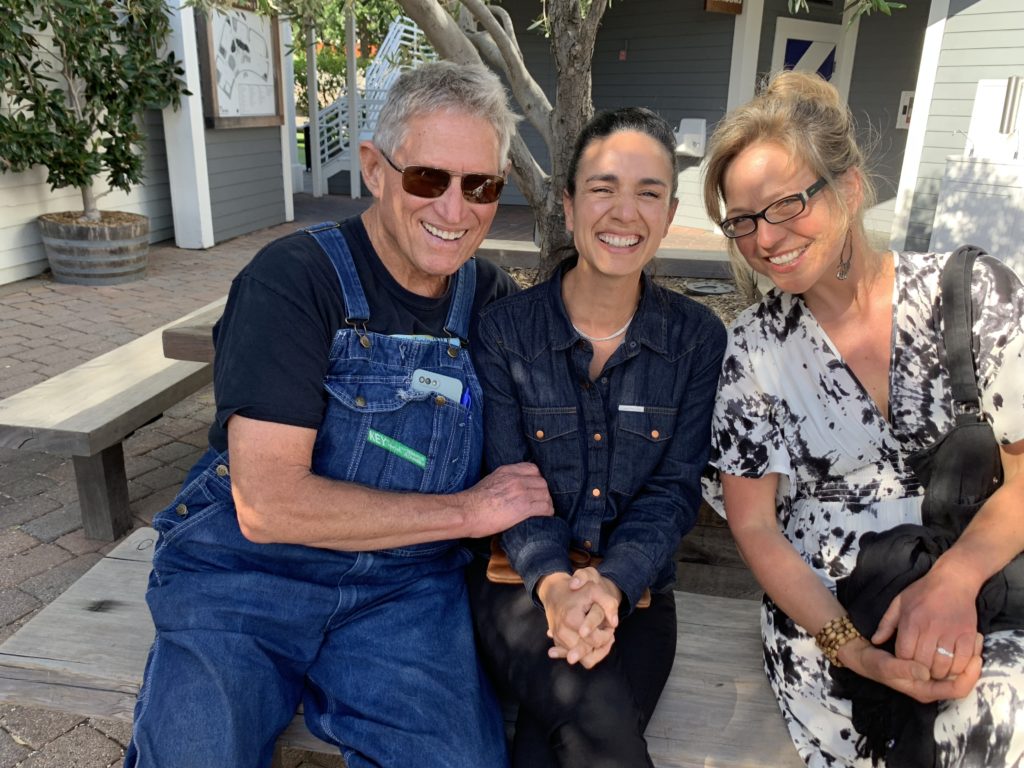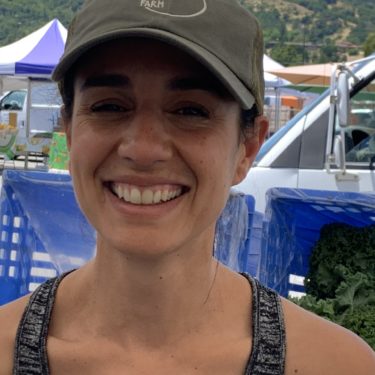Written by Sierra Barsten
California’s central coast represents one of the most beautiful and agriculturally rich regions in the country. Watsonville is no exception, and nestled in this area between Santa Cruz and Monterey lies Tomatero Farm, a small organic operation led by farmer Adriana Silva. In an effort to better understand the life of an organic farmer, I was able to speak with Adriana about her job and what inspires her.

Adriana began farming because of the pull she felt to do something beneficial for her community, and attributes that pull to the generations before her that pioneered organic agriculture. Having previously worked in Santa Cruz at a local farmers market, it was there that she “found a partner both in life and farming”. With the additional support of a partner to start this adventure with her, she began Tomatero Farm. The farm is completely organic, a certification that to Adriana means “building and protecting the soil”. She spoke about how the definition of organic is in a state of ongoing evolution, as new farming methods such as hydroponics emerge, which don’t require soil at all. It’s a difference of what she described as, “the ethics of organic versus the practice of organic”, where something that may be sustainable isn’t necessarily what organic brings to agriculture.
We also touched on the topic of food justice, something that I always appreciate hearing about from the perspective of food suppliers. Adriana said simply that, “People should be paid well for feeding people. Employees should have healthcare, and organic food should be accessible to all populations”. The lack of accessibility of organic, fresh foods to all is an issue growing in magnitude as the COVID pandemic exacerbates pre-existing chronic illnesses for many. Systemic food apartheid, or the strategic inaccessibility of healthy food to marginalized/BIPOC populations, is a crisis that I have found weighs heavily on small farmers. What’s even further troubling are the alarmingly low wages often paid to farmworkers, especially to those who are undocumented workers. Low wages, lack of access to healthy food, and the looming threat of exploitation and deportation makes farm work extraordinarily difficult for an estimated 75 percent of the country’s farmworkers. This is something that Adriana seeks to remedy at her small Watsonville farm, where she said that, “We treat our workers well, and always do our best to do so. You can tell when people want to work for you, it’s because they feel like a part of the farm.”

As for what Adriana hopes will change in our food systems, she reflected on the difficulty of the farming industry as a whole. “If we want farmers to succeed and flourish, there needs to be more pause to make all of the new information about regulations and running a business more digestible to a younger population”, she said. “If I had known a lot of this stuff, I wouldn’t have been so intimidated when I started”. She said how being a young farmer made her naive, and that if she knew how hard farming really is, she may not have done it. “That’s why a lot of people don’t go into agriculture. We need new information and innovation that can draw new people into agriculture that otherwise wouldn’t be interested”. Despite the challenges of farming, Adriana appreciates how farming is “never boring”. “I’m always busy, and there’s always something to do and something going wrong. You have to like challenges”. One of those challenges has been the pandemic, and although much has changed, Adriana also mentioned how, “Farmers are uniquely equipped to deal with hardship. You’re so used to things not going as planned, so we’re good pivoters.” She offered useful advice to young farmers who want to get into agriculture but don’t know where to start, saying that, “With farming, you can’t do things the same way forever and be happy. You have to be adaptable”. To Adriana, farming can be what you make of it. “Whether you want to go into hydroponics or heavy farming, there’s a place for all of it”. She hopes that in the future, young people will be able to more easily obtain the resources needed for farming, so that the industry can be overall more welcoming to people of different demographics.

The last topic of our conversation about farming, challenges, and organics focused on self-care as a farmer. Farming is a busy profession, and often doesn’t leave ample time for taking care of oneself. Adriana said that her self-care involves “eating well”, and since farming is a full-time investment, the importance of healthy eating cannot be understated. Her favorite easy meal is chopped raw lacinato kale (organic of course), dressed with olive oil, salt, pepper flakes, and raw garlic. She also finds joy in her favorite growing season in the Fall, during which “everything collides, where everything grows at once, and Fall vegetables start staying for the winter”.
As a small organic farmer, Adriana has faced a variety of challenges and obstacles throughout her career, but finds fulfillment in the connection to the food that she provides people with. During the COVID pandemic, Tomatero Farm has been a source for weekly CSA produce boxes, giving people the opportunity to continue safely enjoying healthy food. She concluded by saying that, “You’re drawn to certain foods for a reason. Sometimes people lack connection to what they’re buying, so let your mind-body connection lead you to good choices when purchasing food”.
